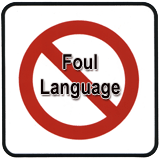The United States Commission on International Religious Freedom is a bi-partisan government agency that was created by the International Religious Freedom Act of 1998. Their job is to monitor countries for freedom of thought, conscience, and religion. Nations are expected to abide by Article 18 of the
Universal Declaration of Human Rights which states: Everyone has the right to freedom of thought, conscience and religion; this right includes freedom to change his religion or belief, and freedom, either alone or in community with others and in public or private, to manifest his religion or belief in teaching, practice, worship and observance. Nations that are especially egregious violators of these standards are placed on a list of “Countries of Particular Concern”, and the USCIRF reports to the Secretary of State, Congress, and the President with their findings and recommendations.
The USCIRF placed eleven nations on their “Countries of Particular Concern” list. The following eight were confirmed by the Secretary of State: Saudi Arabia, China, North Korea, Sudan, Iran, Vietnam, Eritrea, and Burma. The other three were Turkmenistan, Uzbekistan, and Pakistan. In addition, seven countries made their “Watch List”, including: Afghanistan, Bangladesh, Belarus, Cuba, Egypt, Indonesia, and Nigeria. All of these nations are discussed at length in the
USCIRF May 3, 2006 Annual Report from which all quotes are taken.
Saudi Arabia is a Muslim nation. In Saudi Arabia there is no freedom of religion whatsoever. The government allows no public religious expression apart from one form of Sunni Islam and represses private dissenting private religious activity. In addition, the Saudi government has been found to help finance activities “that support extreme religious intolerance, hatred, and, in some cases, violence toward non-Muslims and disfavored Muslims.”
China is communist. In China, “every religious community in China is subject to serious restrictions, state control, and repression. The most severe religious freedom abuses are directed against Tibetan Buddhists, Uighur Muslims, Roman Catholics, house church and unregistered Protestants, and spiritual groups such as the Falun Gong—abuses involving imprisonment, torture, and other forms of ill treatment.”
China’s cruelty toward Tibet has attracted attention from many and rightfully so. However, China has been one of the worst persecutors of Christians of all the countries of the world with legions of stories whispered from there of their suffering. Nonetheless, Christianity is taking hold there with estimates of 10,000 conversions per day. Chinese Christians, accustomed to persecution, have vowed that they will be the ones to take the Faith to the Muslim world much of whom have not even heard the message. They feel that they are better able to do this because the Muslim nations do not view them with the same suspicion as they do the United States. That distrust runs deep, all the way back to some of them siding with the Nazis during World War II and with the USSR during the Cold War period.
North Korea is a dictatorship with communist leanings. “Freedom of thought, conscience, and religion or belief does not exist” in North Korea, “as the government severely represses public and private religious activities and maintains a policy of tight control over government-sanctioned religious practice…religious belief of any kind is viewed by the government as a potential competitor to the forcefully propagated cult of personality centered on Kim Jong Il, and his late father, Kim Il Sung. In the past several years, North Korean government officials have arrested, imprisoned, tortured, and sometimes executed those discovered engaging in clandestine religious activity.”
In fact, the persecution is so horrific in North Korea that some have attempted to escape to China for relief from their suffering. China, however, has little use or respect for these political and religious asylum-seekers and sends them back.
In Sudan, which is mostly Muslim, genocide has been occurring for decades. “[S]ecurity forces have not been held to account for the human rights abuses committed during Sudan’s North-South Civil War, most of whose victims were Christians or followers of traditional African religions.” In the North “government agencies continue to harass and discriminate against Christians, other non-Muslims, and Muslims who dissent from the government’s views. In prisons and vagrant camps, non-Muslims are pressured to convert to Islam. Apostasy is legally punishable by death. Permission to build churches is routinely denied.” Little real change has transpired in Darfur.
“The government of Iran engages in systematic, ongoing, and egregious violations of
religious freedom, including prolonged detention, torture, and executions… President Ahmadinejad’s repeated threats to destroy Israel and denials of the Holocaust have intensified fears among Iran’s Jewish community.” Iran remains overwhelmingly Muslim.
Vietnam is a communist nation. Its government “continues to harass, detain, imprison, and discriminate against leaders and practitioners of all religious communities.” Christian groups that face great persecution there include Montagnard http://www.montagnards.org/ and Hmong Protestants (both minority ethnic groups) and Vietnamese Mennonites.
In Eritrea, which about evenly divided between Muslims and Christians, “the government officially recognizes the Orthodox Church of Eritrea (Coptic Orthodox), Sunni Islam, the Roman Catholic Church, and the Evangelical Church of Eritrea, a Lutheran-affiliated denomination”. The government is guilty of egregious human rights’ violations including disruption of private ceremonies such as weddings, “arbitrary arrests and detention without charge of [religious detainees], and the mistreatment or torture of religious detainees, sometimes resulting in death. Hundreds of members of unregistered churches are believed to be detained at any given time, typically without charges, even for extended periods.”
Burma, also known as Myanmar, is a military dictatorship/Buddhist nation. “The government imposes restrictions on certain religious practices, controls and censors all religious publications, has supported, allowed, or instigated violence against religious minorities, and, in some areas of the country, has forcefully promoted Buddhism over other religions.”
Uzbekistan, Turkmenistan, and Pakistan are all Muslim nations and “have engaged in or tolerated particularly severe violations of religious freedom”.
Afghanistan, Bangladesh, Egypt, and Indonesia are overwhelmingly Muslim nations. Belarus is technically Christian but the Communist influence remains and repressive laws are in place against any unregistered religious activity. Cuba is communist and dislikes and strongly discourages dissent, and Nigeria is more than half Muslim and a bit less than half Christian. The Muslim north, however, continues to push for an expansion of Shariah law and makes frequent incursions into the Christian south.
Despite the Universal Declaration of Human Rights, there are many places in this world that do not allow dissenting religious views. Regardless of who is being persecuted or who are the persecutors, it is clear that this is not an acceptable situation. Christians, especially, seem to get the short end of the stick in most of the nations that engage in religious intolerance. The stories that flow from these nations of the abuse faced are heartrending. This list is hardly inclusive of all the places where persecution and abuse take place. Witness the
Christian orphanage in Nepal.
One organization which works to educate the world about the persecution of the Church that takes place in nations such as these is
Voice of the Martyrs. Please check out their site. Also, this is my first post in the
VOM carnival. Check out others’ posts if you have opportunity.











